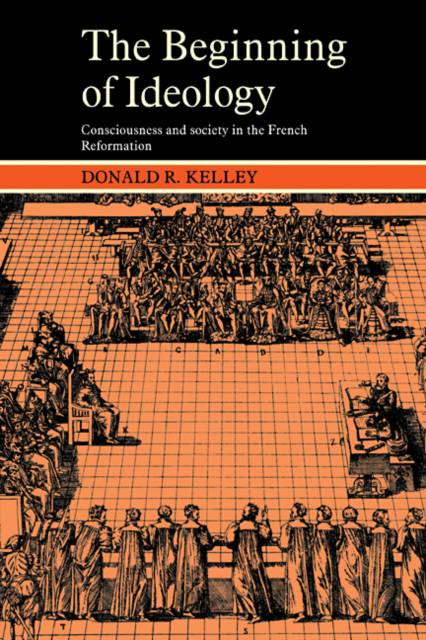
- Afhalen na 1 uur in een winkel met voorraad
- Gratis thuislevering in België vanaf € 30
- Ruim aanbod met 7 miljoen producten
- Afhalen na 1 uur in een winkel met voorraad
- Gratis thuislevering in België vanaf € 30
- Ruim aanbod met 7 miljoen producten
Zoeken
The Beginning of Ideology
Consciousness and Society in the French Reformation
Donald R Kelley, Kelley Donald R
€ 50,45
+ 100 punten
Omschrijving
There was much talk about 'the end of ideology' in the last half of the twentieth century but little attempt to understand the obverse of this phenomenon - the 'beginning of ideology'. This book examines not the exhaustion but the generation of sentiments, values, ideals, justifications and actions which underlie one spectacular case of profound intellectual and social change. The Protestant Reformation, especially in its French phase, is a locus classicus of this process, viewed here in terms of individual and group consciousness, organisation and action which moved from religious disaffection to a social dissent and finally to political revolution. Although a wide variety of sources is used, the book is based on the vast body of pamphlet material produced in the sixteenth century. most abundantly in the Francophone world. The aim of the book is to present an anatomy of the private and public consciousness reflected in the thought and action of Protestant parties and their supported during their ideological supremacy in the late sixteenth century. A case study in the 'beginning of ideology', this book is also a multi-levelled interpretation of modern Europe's first age of revolution.
Specificaties
Betrokkenen
- Auteur(s):
- Uitgeverij:
Inhoud
- Aantal bladzijden:
- 368
- Taal:
- Engels
- Reeks:
Eigenschappen
- Productcode (EAN):
- 9780521274838
- Verschijningsdatum:
- 31/03/1983
- Uitvoering:
- Paperback
- Formaat:
- Trade paperback (VS)
- Afmetingen:
- 152 mm x 229 mm
- Gewicht:
- 539 g

Alleen bij Standaard Boekhandel
+ 100 punten op je klantenkaart van Standaard Boekhandel
Beoordelingen
We publiceren alleen reviews die voldoen aan de voorwaarden voor reviews. Bekijk onze voorwaarden voor reviews.











